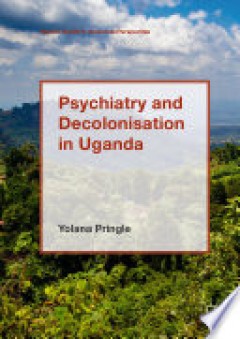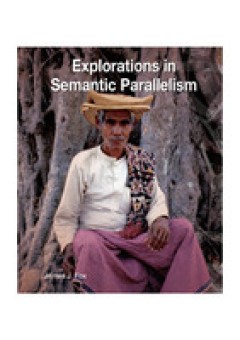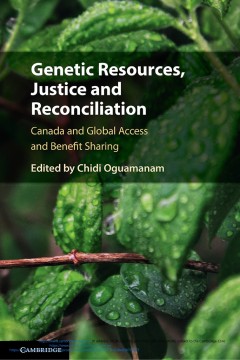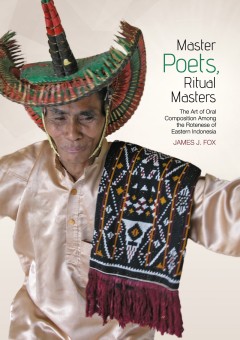Filter by
# Debug Box
/var/www/htdocs/pustaka-digital/lib/SearchEngine/SearchBiblioEngine.php:688 "Search Engine Debug 🔎 🪲"
Engine Type ⚙️: "SLiMS\SearchEngine\SearchBiblioEngine"
SQL ⚙️: array:2 [ "count" => "select count(sb.biblio_id) from search_biblio as sb where sb.opac_hide=0 and ((match (sb.topic) against (:subject in boolean mode)))" "query" => "select sb.biblio_id, sb.title, sb.author, sb.topic, sb.image, sb.isbn_issn, sb.publisher, sb.publish_place, sb.publish_year, sb.labels, sb.input_date, sb.edition, sb.collation, sb.series_title, sb.call_number from search_biblio as sb where sb.opac_hide=0 and ((match (sb.topic) against (:subject in boolean mode))) order by sb.last_update desc limit 10 offset 0" ]
Bind Value ⚒️: array:1 [ ":subject" => "'+\"oral\"'" ]

Psychiatry and decolonisation in Uganda
This open access book investigates psychiatry in Uganda during the years of decolonisation. It examines the challenges facing a new generation of psychiatrists as they took over responsibility for psychiatry at the end of empire, and explores the ways psychiatric practices were tied to shifting political and development priorities, periods of instability, and a broader context of transnational …
- Edition
- 1
- ISBN/ISSN
- 9781137600950
- Collation
- XII, 259p, ; ill.
- Series Title
- Mental health in historical perspective
- Call Number
- 616.890096761 PRI p

Explorations in Semantic Parallelism
Since 1965, when I frst began to record and attempt to understand the ritual poetry of the Rotenese, the study of semantic parallelism has been a major focus of my research. My chief concern has been with the semantics of canonical parallelism. In my view, the study of parallelism and particularly the study of canonical parallelism is no minor subject but is, in fact, a matter of central theore…
- Edition
- -
- ISBN/ISSN
- 9781925021066
- Collation
- xi, 433p. : ill
- Series Title
- -
- Call Number
- 401.43 JAM e

Polio Across the Iron Curtain : Hungary's Cold War with an Epidemic
By the end of the 1950s, Hungary became an unlikely leader in what we now call global health. Only three years after Soviet tanks crushed the revolution of 1956, Hungary became one of the first countries to introduce the Sabin vaccine into its national vaccination programme. This immunization campaign was built on years of scientific collaboration between East and West, in which scientists, spe…
- Edition
- -
- ISBN/ISSN
- 9781108355421
- Collation
- ix, 268 p ; ill
- Series Title
- -
- Call Number
- 616.835009439 POL D

The Anglo-Scottish ballad and its imaginary contexts
This is the first book to combine contemporary debates in ballad studies with the insights of modern textual scholarship. Just like canonical literature and music, the ballad should not be seen as a uniquely authentic item inextricably tied to a documented source, but rather as an unstable structure subject to the vagaries of production, reception, and editing. Among the matters addressed are t…
- Edition
- -
- ISBN/ISSN
- David Atkinson
- Collation
- xv, 207p. ; ill.
- Series Title
- -
- Call Number
- 821.04 ATK t

Studies in Malaysian oral and musical traditions
The first of two studies included is “Music in Kelantan, Malaysia and Some of Its Cultural Implications,” by William P. Malm. Kelantan is the northernmost province on the east coast of Malaysia. It is considered to be the most orthodox area in a nation whose state religion is Islam. At the same time it must be noted that it borders to the north with the Buddhist country of Thailand and to t…
- Edition
- -
- ISBN/ISSN
- 9780472902286
- Collation
- 99 p.
- Series Title
- Michigan Papers On South And Southeast Asia
- Call Number
- 781.75951 MAL s

Genetic resources, justice and reconciliation : Canada and global access and …
When the oral history of a medicinal plant as a genetic resource is used to develop a blockbuster drug, how is the contribution of indigenous peoples recognized in research and commercialization? What other ethical, legal, and policy issues come into play? Is it accurate for countries to self-identify as users or providers of genetic resources? This edited collection, which focuses on Canada, i…
- Edition
- -
- ISBN/ISSN
- 9781108557122
- Collation
- xix, 279p. : ill.
- Series Title
- -
- Call Number
- 346.710469534 GEN g

Stories from Quechan oral literature
"The Quechan are a Yuman people who have traditionally lived along the lower part of the Colorado River in California and Arizona. They are well known as warriors, artists, and traders, and they also have a rich oral tradition. The stories in this volume were told by tribal elders in the 1970s and early 1980s. The eleven narratives in this volume take place at the beginning of time and introduc…
- Edition
- -
- ISBN/ISSN
- 9781909254879
- Collation
- XII, 533 p.
- Series Title
- World Oral Literature Series
- Call Number
- 970.00497 HAL s

Interface oral health science 2016 : innovative research on biosis-abiosis in…
This volume broadens understanding of dentistry and promotes interdisciplinary research across a wide range of related fields, based on the symposium entitled "Innovative Research for Biosis–Abiosis Intelligent Interface 2016". It aims to create highly functional and autonomic intelligent interface by combining highly functional interface science with the technology of an evaluation and a con…
- Edition
- -
- ISBN/ISSN
- 9789811015601
- Collation
- xi, 277p. : ill.
- Series Title
- -
- Call Number
- 617.6 INT i

The lands west of the lakes; A history of the Ajattappareng kingdoms of South…
The period 1200-1600 CE saw a radical transformation from simple chiefdoms to kingdoms (in archaeological terminology, complex chiefdoms) across lowland South Sulawesi, a region that lay outside the ‘classical’ Indicized parts of Southeast Asia. The rise of these kingdoms was stimulated and economically supported by trade in prestige goods with other parts of island Southeast Asia, yet the …
- Edition
- -
- ISBN/ISSN
- 9789067183314
- Collation
- xvi, 377 p.
- Series Title
- Verhandelingen van het Koninklijk Instituut voor Taal-, Land- en Volkenkunde
- Call Number
- 909 DRU l

Master poets, ritual masters : the art of oral composition among the Rotenese…
This is a study in oral poetic composition. It examines how oral poets compose their recitations. Specifically, it is a study of the recitations of 17 separate master poets from the Island of Rote recorded over a period of 50 years. Each of these poets offers his version of what is culturally considered to be the ‘same’ ritual chant. These compositions are examined in detail and their oral …
- Edition
- -
- ISBN/ISSN
- 9781760460068
- Collation
- xv, 444p. : ill
- Series Title
- -
- Call Number
- 398.2095987 FOX m
 Computer Science, Information & General Works
Computer Science, Information & General Works  Philosophy & Psychology
Philosophy & Psychology  Religion
Religion  Social Sciences
Social Sciences  Language
Language  Pure Science
Pure Science  Applied Sciences
Applied Sciences  Art & Recreation
Art & Recreation  Literature
Literature  History & Geography
History & Geography